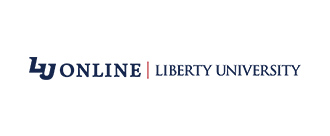Would you like to provide clinical counseling for individuals who have behavioral or relationship problems? If so, you will need at least a master's degree and a state license to practice. At Liberty University, you can pursue the Master of Arts in Professional Counseling degree online. Below, you will find some information about the program.
<h2 id="section---FrequentlyAskedQuestions">Frequently Asked Questions</h2>
<h3 id="section---WhatKindOfProgramIsIt">What Kind of Program Is It?</h3>
<p>When you enroll in the Master of Arts in Professional Counseling program at Liberty University, you will gain the skills necessary to assess the mental and physical health of patients and to develop treatment plans based on your findings. Your coursework will encompass biblical principles, allowing you to integrate a Christian worldview into your counseling techniques. Along with courses such as group process and marriage counseling, you will be required to successfully complete an internship. This online program could prepare you to pursue state licensure, though requirements may vary by state and for certification at the national level.
</p>
<h3 id="section---WhatAreThePrerequisites">What Are the Prerequisites?</h3>
<p>If you are interested in applying to Liberty University's Master of Arts in Professional Counseling program, you must have already earned a high school diploma or GED. Compassion, patience, and empathy are some of the qualities you should possess if you are considering this program. You should also have great communication and listening skills.
</p>
<h3 id="section---WhatAreTheCourseRequirements">What Are the Course Requirements?</h3>
<p>Liberty University offers two Master of Arts in Professional Counseling programs. One program comprises 48 credit hours; the other consists of 60 credit hours, combining a 48-credit required course series and a 12-credit electives component. You must complete the program within seven years.
</p>
<p><u>Master of Arts in Professional Counseling Course Requirements</u>
</p>
<p />
<table border="1"><tr><th>Course Number </th><th> Course Title</th></tr>
<tr><td><b>Required Courses</b> </td><td /></tr>
<tr><td>COUN 501 </td><td> Counselor Professional Identity, Function and Ethics</td></tr>
<tr><td>COUN 502 </td><td> Human Growth and Development</td></tr>
<tr><td>COUN 503 </td><td> Research and Program Evaluation</td></tr>
<tr><td>COUN 504 </td><td> Social and Cultural Foundations in Counseling</td></tr>
<tr><td>COUN 505 </td><td> Counseling Techniques and the Helping Relationship</td></tr>
<tr><td>COUN 506 </td><td> Integration of Psychology and Theology</td></tr>
<tr><td>COUN 507 </td><td> Theology and Spirituality in Counseling</td></tr>
<tr><td>COUN 510 </td><td> Theories of Counseling</td></tr>
<tr><td>COUN 512 </td><td> Group Process</td></tr>
<tr><td>COUN 521 </td><td> Individual Appraisal</td></tr>
<tr><td>COUN 522 </td><td> Career Development and Counseling</td></tr>
<tr><td>COUN 601 </td><td> Marriage and Family Counseling I</td></tr>
<tr><td>COUN 646 </td><td> Psychopathology and Counseling</td></tr>
<tr><td>COUN 667 </td><td> Clinical Diagnosis and Treatment Planning</td></tr>
<tr><td>COUN 670 </td><td> Comprehensive Exam - CPCE</td></tr>
<tr><td>COUN 671 </td><td> Comprehensive Exam - Integration</td></tr>
<tr><td>COUN 698 </td><td>Practicum (48-credit hour program only; may be repeated)</td></tr>
<tr><td>COUN 699 </td><td> Counseling Internship (may be repeated)</td></tr>
<tr><td>COUN 711 </td><td> Diagnosis & Treatment of Addictive Behaviors (60-credit hour program only)</td></tr>
</table><p />
<table border="1"><tr><th>Elective Courses</th></tr>
<tr><td>If completing the 60-credit hour program, choose four electives from the following disciplines: COUN, CRIS, LIFC and SUBS.</td></tr>
</table><h3 id="section---WhatCouldIDoAfterIGraduate">What Could I Do After I Graduate?</h3>
<h4 id="section---CareerOpportunities">Career Opportunities</h4>
<p>Upon graduation from this Master of Arts in Professional Counseling program, you could seek employment opportunities in mental health clinics, state and local hospitals, and residential substance abuse facilities. A master's degree and license could allow you to pursue positions such as:
</p>
<ul><li>Marriage Counselor
</li><li>School Counselor
</li><li>Rehabilitation Counselor
</li><li>Career Counselor
</li></ul><h4 id="section---AdvancedDegrees">Advanced Degrees</h4>
<p>For a career in research or university-level teaching, you will need more educational training, such as that offered by doctoral degree programs. A doctoral degree is also generally needed to pursue opportunities in clinical or counseling psychology. You could consider pursuing a degree such as:
</p>
<ul><li>Ph.D. in Professional Counseling
</li><li>Ph.D. in Counseling Psychology
</li><li>Doctor of Psychology</li></ul>


.svg)


